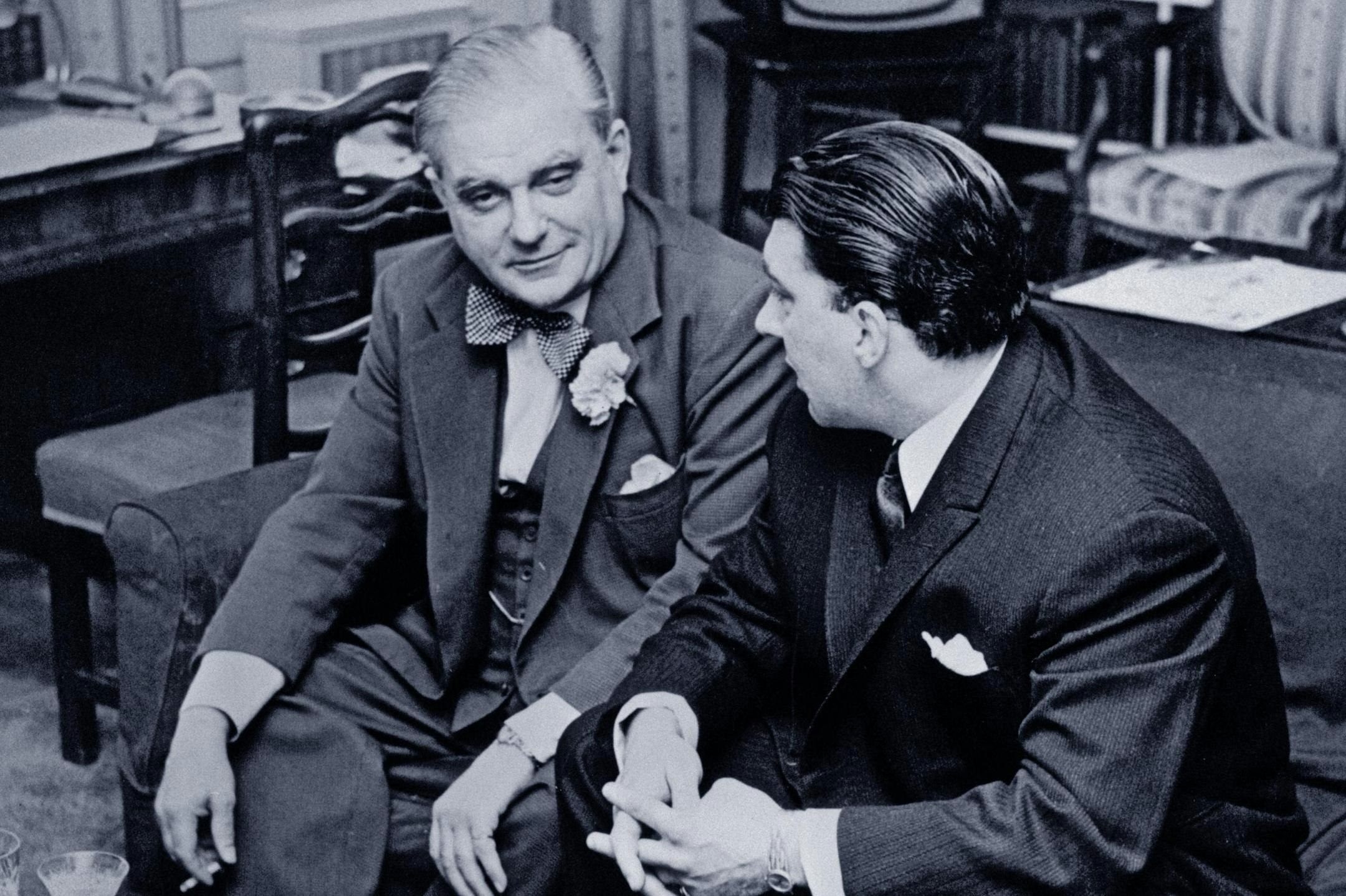This article is taken from the June 2025 issue of The Critic. To get the full magazine why not subscribe? Right now we’re offering five issues for just £25.
Four years after the death of the politician, media figure and pervert Robert Boothby — “Bob” to his friends, “Lord Boothby” to his admirers and “that fat man” to the teenage boys he paid to abuse — a biography was written by his admirer, the historian and Conservative MP Robert Rhodes James.
The 1991 life, entitled Robert Boothby: A Portrait of Churchill’s Ally, had been entrusted to Rhodes James by Boothby and his (somewhat unexpected) widow Wanda Sanna, on the strict proviso that the biographer produced a glowing encomium to a great man, rather than the warts-and-all account of a deeply disreputable and unhappy figure.
A whitewash duly followed, omitting or toning down huge swathes of Boothby’s rackety life. It is typical of Rhodes James’ dishonest account that it refuses even to discuss Boothby’s sexuality: a particularly vast omission, given that the late peer’s voracious appetites drove him into compromising situations from which he only managed to extricate himself through good fortune and the old school tie.
There has been no further biography since — though Dan Smith’s 2020 book The Peer and the Gangster did a decent job of contextualising Boothby’s convoluted, platonic and hopelessly compromised relationship with Ronnie Kray.
It is unlikely in today’s climate that any publisher would touch him as a subject: Boothby may have been committedly bisexual (and was accurately described by MI5 in a recently released dossier as “a kinky fellow”), but it is impossible to imagine any LGBTQ groups attempting to reclaim him as a queer icon. Had he attended a gay rights meeting, he would probably have necked the wine, wolfed down the sandwiches, made a pass at the prettiest of the speakers — of either sex — and then headed into the night, considering his job well done.
As a politician, Boothby was negligible, of most interest to political historians for the period he spent as bag-carrier to Winston Churchill between 1926 and 1929, but any serious chance of his attaining ministerial office was stymied both by his personal dishonesty and his sexual peccadilloes.
He was compelled to resign his lowly wartime position of parliamentary secretary to the Ministry of Food for asking a question in Parliament that benefitted his friend, the Czech-Austrian businessman Richard Weininger, without the financial bonus that he stood to receive if Weininger’s assets were unfrozen.
It was an embarrassing misstep that derailed his career. Although Boothby protested his innocence, Churchill was unimpressed. When his erstwhile protégé asked what he should do, the Prime Minister growled, “Get yourself a job with a bomb-disposal unit.”
It was in the knowledge that he was a mediocrity that Boothby laid aside any political ambition and instead turned himself into that thing the British love most: a great character.
Rather like Boris Johnson in reverse, Boothby became a stalwart of Any Questions? and the newspaper columns, assiduously parlaying his distinctive, port-marinated tones into the nation’s sitting rooms and kitchens almost by stealth.
Having achieved little of note as a backbench MP for Aberdeenshire by the time that he successfully cajoled Harold Macmillan into giving him a peerage in 1958, he was probably best known for making heartfelt but trifling speeches on the virtues of herring: a racket he would continue from the House of Lords.
He was lovable Bob, the taxi drivers’ favourite, always ready with a quip and a fool-born jest to disarm and charm anyone in sight. When the applause from the wireless had died down and the nation had gone to bed, Boothby pounced.
His cousin Ludovic Kennedy once called him, to his face, “a complete shit”. Boothby’s response was not to take the criticism amiss but to rub his hands, chortle and say, “Well, a bit. Not entirely.” Like his opposite number in the Labour party, Tom Driberg — about whom, thanks to Francis Wheen’s magnificent 1990 biography, we know all the sordid details — Boothby operated with impunity, safe in the knowledge that his powerful friends would protect him from exposure, indecent or otherwise.
He regularly holidayed with Colin Coote, the editor of the Daily Telegraph, and to read Coote’s correspondence is to be embarrassed both for him and for the paper he edited. The man seems so pathetically impressed by Boothby — so in awe of his wit, sophistication and humour — that it is all he can do not to offer himself up to him.
Middle-aged newspaper editors, however, were not to Boothby’s tastes. He had a penchant for pretty, working-class young men, usually with some sort of thuggish or criminal disposition. His encounters with these characters, who would often steal his possessions or try to cash his cheques, would make it into the papers, but such was Boothby’s affectionate standing that these stories would be glossed over or presented as something out of comic opera.
Perhaps a contemporary reader observing the consistency with which this Falstaffian character was cheated out of his money may have wondered why his generosity was so abused by the ungrateful and consider setting up a subscription fund.
Behind the scenes, Boothby behaved with an almost comical degree of recklessness. When he wasn’t haunting the gay brothels of Kensington, where, according to legend, his penchant was for lurking underneath glass-topped coffee tables and observing “chickens” (as he called rent boys) open their bowels, Boothby was flattered by the entreaties of the Kray twins, especially the grimmer and more insane of the two, Ronnie.

They had opened the gambling club Esmeralda’s Barn in Knightsbridge in the early Sixties, after John Aspinall had successfully fought for the legalisation of such establishments in 1960, and swiftly realised that recruiting such fast-living characters as Boothby was crucial for their operation to succeed.
Boothby was given champagne on the house, introduced to the petty criminal Leslie Holt, who would become his “chauffeur”, and generally made much of. No doubt they laughed at his jokes, too. In return, the unwitting Boothby would become what the Krays craved: a passport into legitimate London society.
This nearly came crashing down in the summer of 1964, when the Sunday Mirror, tipped off that Scotland Yard were about to expose the Krays, published a story entitled “The Peer and the Gangster”, which dropped far from subtle hints about “alleged homosexual relationship between a peer who is a household name and a leading thug in the London underworld”.
For good measure, with the subheading “Public men at seaside parties”, the story suggested that a number of clergymen were also involved and that there had been many weekend visits to Brighton.
The following week, the paper ran another instalment, which was, if anything, even more damning. Under the headline “The Picture We Must Not Print”, the paper thundered that it possessed a photograph of “a well-known member of the House of Lords seated on a sofa with a gangster who leads the biggest protection racket London has ever known”.
It declared that “this situation cannot be tolerated” and that “The Sunday Mirror will continue to build up its dossier on the frightening growth of lawlessness, extortion, blackmail and intimidation in London”.
This should have brought Boothby down, but he was introduced to Harold Wilson’s fixer Arnold Goodman, who, after interrogating the hapless politician, swiftly realised that there were numerous logical and factual errors in the newspaper’s story.
This meant that, if they were sued for libel, they would probably lose.
Goodman and Boothby’s old university friend Gerald Gardiner QC therefore managed to make the Sunday Mirror pay £40,000 damages in an out-of-court settlement that Gardiner admiringly called “the fastest and largest settlement of the kind ever made”.
In order to obtain it, Boothby had written a letter to The Times in which, amongst other lies, he claimed only to have met Kray a handful of times and purely on business matters and never to have been a homosexual.
This was less a case of “up to a point, Lord Copper” and more a flagrant falsehood that would probably have been dismantled in court. But the combination of Goodman — with Wilson in the background — and the Krays was a formidable one, and £40,000 seemed a reasonable price to pay in the circumstances.
It meant that Boothby was now the Krays’ creature. He would remain so until their eventual downfall in 1969. He had to undertake embarrassing tasks on their behalf, such as asking a question in the House of Lords in early 1965 as to why they had been imprisoned pending trial for demanding money with menaces: something that was sub judice, as he well knew.
Although he had the indulgence of many newspaper proprietors during his life, not least the fearsome Lord Beaverbrook, Boothby seemed to have a childish desire to shock.
At the end of 1963, he wrote a letter to the editor of the Sunday Express, following Beaverbrook’s (admittedly self-serving) encomium to the ailing Winston Churchill, and suggested that the newspaper proprietor supported “the filthy Nazi regime”, which meant that “the tribute is not only moving. It is also nauseating”.
An outraged Beaverbrook announced his intention of bankrupting Boothby in court, but his death from cancer a few months later frustrated this endeavour. Once again, the peer had cheated his deserved fate.
In his highly selective 1978 memoir Recollections of a Rebel, Boothby concluded by writing, “I think I have managed to do something practical to help the fishermen, the farmers, the cancer-sufferers, the Czech refugees, the buggers and the osteopaths. It is not precisely the programme I planned for myself when I first entered public life. But it is something.”
It is fair to say that he contributed to the gaiety of the nation with his broadcasts, his quips and his colourful lifestyle, and the indulgent gave him a pass because he made them laugh. Yet he left a trail of misery and chaos in his wake, whether it was the boys he abused for his sexual gratification, the marriages that he tore through like a portly hurricane — most notably Harold Macmillan’s, given Boothby’s long extramarital affair with his wife Dorothy — and the metaphorical chisel that he took to the cause of British decency.
Still, some were onto him, even then. MI5 was concerned less by Boothby’s sexual antics and more, in the era of Burgess, Maclean et al, as to whether a man who had been a supporter of the shadowy “Friends of the Soviet Union” might have been a potential sleeper agent. When some digging was done, however, the conclusion was an oddly reassuring one. Not only had Boothby never been allowed near any sensitive material, but the Soviets wouldn’t have wanted him anyway on the grounds of basic unreliability.
Being turned down as a double agent: that is the most damning judgement that posterity could have bestowed on this particular rotter.











